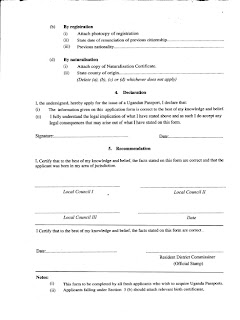What Can We Learn From Ants?

Two ants (Photo credit: Wikipedia)
Proverbs 30:25 says, “Ants are of little strength, yet they store up their food in the summer.”
Ants are amazing creatures. It’s estimated that if you were to weigh
all of the ants on earth, they would weigh more than the total human
population. Whilst we don’t want them running around in our kitchens,
there is a lot that we can learn from them.
So what can we learn from these remarkable insects? Jim Rohn, a
leading business philosopher had a terrific theme that he used to teach
called the Ant Philosophy. It outlines some simple principles that we
can all learn from.
What is the Ant Philosophy?
Ants never quit: When I
was young I was fascinated by ants. When they are on the trail for
food, they don’t let any obstacle stand in their way. They don’t stand
there with their hands on their hips and look at each other in
disbelief. They don’t shrug their shoulders and give up on their goal.
They don’t start to feel sorry for themselves and decide that success
isn’t for them.
They confront their obstacles and walk around it, over it, through it or under it until they achieve their desired outcome.
Think Winter all Summer: In life there are going to
be good times when things seem easier, goals are being achieved and the
sun always seems to be shining. These times don’t last and ants
instinctively understand this, gathering and storing food for the times
when Winter comes and food is scarce.
When things are going well for us, we shouldn’t just give ourselves
high fives and sit back and relax. We should be planning for the times
when things will go wrong and we are feeling stressed. We can do this
through continued learning and development, preparing ourselves with the
skills that we may need in the future. Saving money for a rainy day is
also a great idea that comes from this principle.
From a career perspective, we should be utilising the good times in
our career to plan for the next stage. This is much more resourceful
than waiting until you hate your current job and will do anything to
leave.
Think Summer all Winter: When Winter descends on a
colony of ants they go underground waiting eagerly for the sun to shine
and when it does, they are immediately back out and about. They seem to
have an inbuilt optimism and know that the lean times won’t last
forever. As a communal insect, you can almost imagine them encouraging
one another as they anticipate the end of Winter.
There are times in everyone’s life when things go wrong and not
according to plan. Unfortunately, I can almost guarantee that there
will be disappointments and let-downs, making certain periods of your
life seem like Winter. One of the elements of pessimism is that we can
sometimes attach permanence to things that don’t go right. Statements
like, “Life is always out of control”, “I can never get my act together”
and “I’m always stressed” can be extremely damaging and depressing
after a while, making our low periods seem longer and sometimes actually
last longer.
Understand that bad times always end, things do get better and Summer is coming!
Do all that you can: A question that Jim Rohn asks is, “How much does an ant gather during Summer to prepare for Winter?”
Answer: All that he possibly can!
If you want a flourishing career – do all that you possibly can.
If you want to make a contribution to society – do all that you possibly can.
If you want to have an awesome marriage – do all that you possibly can.
If you want to raise well-balanced, confident kids – do all that you possibly can.
If you want to feel empowered and resourceful – do all that you possibly can.
Life rewards action, so think like an Ant and go for it!
http://betterlifecoachingblog.com/2010/04/22/the-ant-philosophy/










